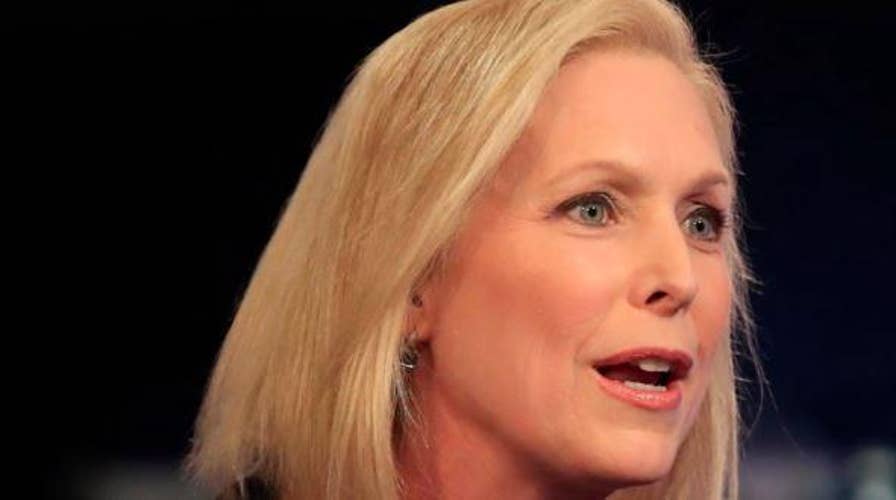2020 presidential candidate Senator Kirsten Gillibrand (D-NY): What to know
What to know about 2020 presidential candidate Senator Kirsten Gillibrand (D-NY), including the policies she advocates and the issues that could make her vulnerable.
Sen. Kirsten Gillibrand accuses President Trump of broken promises in the first TV commercial of her Democratic presidential bid.
Behind in the polls, the senator from New York’s campaign on Tuesday announced what they touted as the “first anti-Trump television attack ad of the 2020 presidential cycle.”
GILLIBRAND CALLS FOR EQUAL PAY FOR WORLD CUP WINNING U.S. WOMEN'S SOCCER TEAM
Gillibrand aides said that the 30-second spot, titled “I Promise,” will run on cable TV and digital this week in the media markets in Pittsburgh, Pa.; Cleveland and Youngstown, Ohio; and Detroit, Lansing and Flint, Mich. Those media markets mirror a campaign bus tour Gillibrand will make on Thursday and Friday through the three Rust Belt states.
Pennsylvania, Ohio and Michigan – won by former President Barack Obama in the 2008 and 2012 elections – were flipped from blue to red in 2016, helping Trump win the White House.
The commercial highlights what Gillibrand calls Trump’s broken promises on restoring manufacturing jobs, lowering prescription drug prices and building up the nation’s infrastructure.
THE LATEST FROM FOX NEWS ON THE 2020 PRESIDENTIAL CAMPAIGN
The ad starts with a clip of Trump from the 2016 presidential campaign saying “if I’m elected you won’t lose one plant. You’ll have plants coming into this country. You’re going to have jobs again. I promise.”
The spot then uses a clip of Trump saying “you’ll be seeing drug prices falling very substantially. I promise,” followed by a third clip of Trump vowing “we will build the next generation of roads, bridges, railways, I promise.”
The words “NO MORE BROKEN PROMISES” then flashes across the screen before Gillibrand emphasizes in a clip that “as president, I will take on the fights no one else will.”
The Gillibrand campaign tells Fox News that five figures are being spent to run the commercial over two days on both cable TV and digital.
The senator, who launched her White House bid in January, has struggled in the polls as she’s tried unsuccessfully -- so far -- to stand out from the historically large field of nearly two-dozen Democratic presidential contenders.





